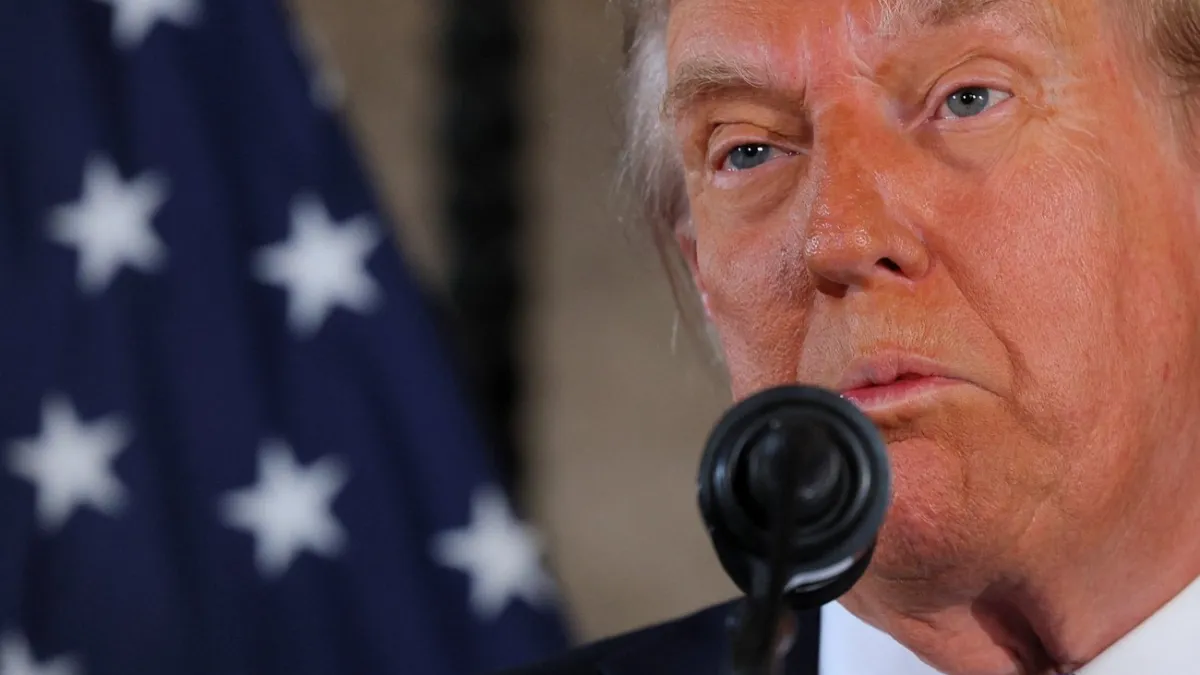
President-elect Donald Trump said Tuesday that he plans to create a new federal agency to collect tariffs and revenue from international sources.
“I am today announcing that I will create the EXTERNAL REVENUE SERVICE to collect our Tariffs, Duties, and all Revenue that come from Foreign sources,” Trump wrote on his social media platform. “We will begin charging those that make money off of us with Trade, and they will start paying, FINALLY, their fair share.”
The incoming president provided no further details on how the new agency would function or when it would start to operate, though it’s unlikely to begin on January 20, Inauguration Day, as Trump suggested in his post, since it takes an act of Congress to create a federal agency. A fast start would be possible, however, if the new effort is simply a renaming or reorganization of offices within existing agencies.
Currently, a fee from a tariff — defined by the Congressional Research Service as “a tax levied on imported goods and services” — is typically collected by U.S. Customs and Border Protection at a port of entry, under regulations established by the Secretary of the Treasury, with the tariff level set by the White House and Congress.
Here’s how the process of tariff collection currently works, according to a CRS overview of U.S. policy updated last month: “When a good enters a U.S. port of entry, merchandise is classified and tariffs are assessed using the Harmonized Tariff Schedule of the United States (HTSUS), a compendium of tariff rates based on a globally standardized nomenclature. Today, importers self-classify and declare the value or quantity of their goods. CBP reviews the paperwork, performs occasional audits, and then collects any applicable tariffs or penalties as well as any administrative fees. Finally, CBP deposits any revenue from tariffs or other penalties into the General Fund of the United States.”
A quest for revenue: While it’s still not clear why a new federal agency would be needed to do the work currently handled by existing agencies, a lawyer with a group that supports Trump’s push for higher tariffs told The Washington Post that it’s a sign of how serious the incoming administration is about maximizing tariff revenues.
“Why doesn’t anybody else understand we’re all-in for tariffs for revenue?” said Charles Benoit of the Coalition for a Prosperous America. “He keeps saying it again and again. Trump and Lutnick are clearly all-in on tariffs for revenue, but most people have not adopted that paradigm yet,” he added, referring to Howard Lutnick, who is in line to serve as Trump’s Commerce secretary.
Or a PR ploy: Critics saw a different motive. Trump has repeatedly claimed that foreign manufacturers or countries pay tariffs, but they are in fact a tax on goods paid by importers, and the new agency could serve to obscure that fact. “This is clever marketing, but it doesn't change the fact that American consumers will end up paying these higher tariffs,” said The Washington Post’s Heather Long.
Kimberly Clausing, a trade expert who served as Deputy Assistant Secretary for Tax Analysis at the Treasury Department under President Joe Biden and is now affiliated with UCLA School of Law and the Peterson Institute for International Economics, had the same suspicion. “We already have a customs and border agency that collects tariff revenue,” she told the Post. “All evidence suggests U.S. buyers of imports bear the burden of tariffs. This is all about Trump’s desire to mask a tax increase as something that would instead be paid by foreigners.”